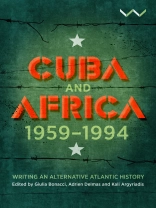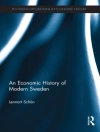‘The Cuban people hold a special place in the hearts of the people of Africa. The Cuban internationalists have made a contribution to African independence, freedom, and justice, unparalleled for its principled and selfless character.’ As Nelson Mandela states, Cuba was a key participant in the struggle for the independence of African countries during the Cold War and the definitive ousting of colonialism from the continent. Beyond the military interventions that played a decisive role in shaping African political history, there were many-sided engagements between the island and the continent. Cuba and Africa, 1959-1994 is the story of tens of thousands of individuals who crossed the Atlantic as doctors, scientists, soldiers, students and artists. Each chapter presents a case study – from Algeria to Angola, from Equatorial Guinea to the Congo – and shows how much of the encounter between Cuba and Africa took place in non-militaristic fields: humanitarian and medical, scientific and educational, cultural and artistic. The historical experience and the legacies documented in this book speak to the major ideologies that shaped the colonial and postcolonial world, including internationalism, developmentalism and South–South cooperation. Approaching African–Cuban relations from a multiplicity of angles, this collection will appeal to an equally wide range of readers, from scholars in black Atlantic studies to cultural theorists and general readers with an interest in contemporary African history.
Mục lục
Figures and Table Foreword by Shamil Jeppie Acknowledgements Acronyms and Abbreviations Timeline of Historical Events Map of Africa, 1994 Introduction: Reconfiguring the Cuba-Africa Encounter – Kali Argyriadis, Giulia Bonacci and Adrien Delmas PART I: Politics and Solidarity Chapter 1 Cubans in Algiers. The Political Uses of Memory – Emmanuel Alcaraz Chapter 2 Cuban policy and African Politics. Congo-Brazzaville and Angola, 1963-1977 – Héloïse Kiriakou & Bernardo J.C. André Chapter 3 Motivations and Legacies of the Cuban Presence in Equatorial Guinea from 1969 to the Present – Delmas Tsafack Chapter 4 Cuban internationalism in Africa. Civil Cooperation with Angola and its Aftermath – Christine Hatzky PART II: Trajectories Chapter 5 The Experience of a Multidisciplinary Research into Angola’s National Question: Anthropology in a War Context – Pablo Rodríguez Ruiz Chapter 6 Cuban-Congolese Families: From the Fizi-Baraka underground to Havana – Michel Luntumbue PART III: Voices Chapter 7 Atlantic Voices: Imagination and Sound Dialogue between Congolese and Cuban singers in the 1950s – Charlotte Grabli Chapter 8 Cultural Diplomacy in the Cold War: Musical Dialogues between Cuba and West Africa, 1960-1970 – Elina Djebbari PART IV: Reconstructing History, Reconnecting Roots Chapter 9 The Construction of a Spiritual Filiation from Havana to Ilé-Ifé – Kali Argyriadis Chapter 10 The Island, the Peninsula, and the Continent: Cuban American Engagements with Africa – João Felipe Gonçalves Contributors Index
Giới thiệu về tác giả
Shamil Jeppie is an associate professor in the Department of Historical Studies at the University of Cape Town. He founded The Tombouctou Manuscripts Project.












